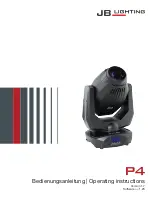
6
Installation and operation manual for
conventional fire panels
EATON
www.eaton.com
Technical Data
25-
16733
-A
Effective
October 2019
EOLM-1 (Standard Conventional Zones)
Each Zone on the panel that is configured for Standard
Conventional mode must have the intelligent end of line module
(EOLM-1™) fitted to continually monitor each zone for the pres-
ence of fault conditions such as detector head removal, open or
short circuit and for end of line failures even when in a Fire condi-
tion (Figure 3) .
The EOLM-1™ module can be placed into the base of the last
manual call point or detector base .
Figure 3. EOLM-1
WARNING
RISK OF DAMAGE TO EOLM-1 IF CORRECT WIRING POLARITY
IS NOT OBSERVED
Eaton Conventional Fire Panel only supports the EOLM-1, do not
attempt to use any other type of EOLM module or use any resis-
tor value .
EOLR (Intrinsically Safe Conventional Zones & Sounder
Circuits)
Any Detection Zone on the panel that is configured for Intrinsically
Safe mode must separate the intrinsically safe devices from the
panel using the intrinsically safe barrier MTL5561 . The last device
on the zone must be terminated with an End of Line Resistor
(EOLR) of 5K1 to ensure proper fault and fire monitoring of the
zone .
Any Sounder Circuit on the panel that is being used for Intrinsically
Safe Sounders must separate the intrinsically safe alarm devices
from the panel using the intrinsically safe barrier MTL7778ac .
The last alarm device on the sounder circuit must be terminated
with an End of Line Resistor (EOLR) of 6K8 to ensure proper fault
monitoring of the circuit .
System Wiring
For zones configured in Conventional mode the zone is wired for
Conventional detection (detectors and call points) devices only and
must be terminated with an EOLM-1 embedded in the last device
(Figure 4) . Intrinsically safe conventional detection devices cannot
be wired onto a conventional zone .
For zones configured in Intrinsically Safe Conventional mode the
zone is wired into the MTL5561 intrinsically safe barrier and all
Intrinsically Safe Conventional detection (detectors and call points)
devices are wired into the barrier with a 5K1 EOLR embedded in
the last device . Standard conventional detection devices cannot be
wired onto an intrinsically safe conventional zone .
For sounder outputs used with standard conventional alarm (wall/
base sounders, VADs and I/Os) devices the circuit must be termi-
nated with 6K8 EOLR embedded in the last device . Intrinsically
safe alarm devices cannot be mixed with standard conventional
alarm devices as an intrinsically safe barrier must be used (see
above) .
For sounder outputs used with Intrinsically Safe alarm devices the
circuit must be wired into the MTL7778ac intrinsically safe barrier
and all Intrinsically Safe Conventional alarm (wall/base sounders,
VADs and I/Os) devices are wired into the barrier with a 6K8 EOLR
embedded in the last device . Standard conventional alarm devices
cannot be mixed with intrinsically safe alarm devices .
Figure 4. Conventional Zone & Sounders Wiring Diagram







































